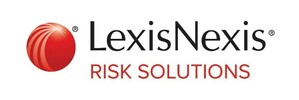Every Rand Lost to Fraud in South Africa Costs Firms R3.64 According to LexisNexis True Cost of Fraud Study
- Fraud has increased for 49% of South African organizations year-on-year.
- For the first time in EMEA, digital channels account for more fraud losses than physical channels.
- Almost all South African organizations say fraud is affecting their customer conversion rates.
JOHANNESBURG, April 17, 2024 /PRNewswire/ -- LexisNexis® Risk Solutions has unveiled the findings of its 2023 LexisNexis® True Cost of Fraud™ Study – Europe, Middle East and Africa. The annual report, based on a commissioned survey conducted by Forrester Consulting, reveals that businesses in EMEA now bear a cost of fraud that is 3.90 times the face value lost in fraudulent transactions.
In South Africa, 49% of companies reported an increase in fraud in the 12 months prior to the survey, while organizations incur an average cost of R3.64 (R3.10 for retailers and R4.52 for financial institutions) for every rand lost to fraud. These costs encompass financial losses due to fraud, as well as internal labor expenses, external costs, interest and fees, along with the expenses associated with replacing or redistributing lost or stolen merchandise.
While rapid adoption of digital payments improves payment experiences, it also exposes numerous systems and channels to more innovative fraud attacks. Across EMEA, digital channels account for 52% of overall fraud losses, surpassing physical fraud for the first time. Consequently, cybercriminals exploit the anonymity of digital, cross-border transactions to execute fast and untraceable fraud. Additionally, the rise of scams and the use of technology, such as artificial intelligence (AI), expands cybercriminals' ability to exploit both consumers and businesses.
The study also reflects the evolution of criminal tactics. More than half (52%) of businesses in EMEA identify the rise of synthetic identities as the primary challenge in customer identity verification. Fraud remains a widespread problem for businesses, exerting pressure not only on financial resources but also impacting overall operational efficiency, customer trust and reputation.
"It is self-evident that new forms of fraud increase the risk of financial losses for consumers and businesses," said Jason Lane-Sellers, director, fraud and identity, EMEA at LexisNexis Risk Solutions. "The issues facing businesses become even more challenging due to the fraud multiplier effect, where the losses experienced by organizations continue to increase and far exceed the lost face value in any transaction. Preventing fraud requires a multi-layered approach throughout the customer journey."
Key Findings from the True Cost of Fraud Study – Europe, Middle East and Africa:
- Commercial Impact: Fraud significantly affects how customers perceive and interact with businesses. Eighty-seven percent (87%) of South African respondents report that fraud has influenced customer satisfaction compared to 75% across EMEA. Ninety-three percent (93%) notice its impact on customer conversion, higher than the 71% recorded in EMEA. These findings demonstrate that South Africa has a particular sensitivity to customer experience. Any impact of fraud or fraud prevention techniques can affect customer satisfaction and lead to broader impacts on companies' bottom line, so balancing prevention with appropriate customer experience controls is essential.
- Evolving Fraud Management Practices: Criminals constantly innovate. This dynamic nature of criminal behavior means that fraud and its associated costs are not static threats that businesses can simply diminish. For instance, new payment methods provide fraudsters with opportunities to exploit vulnerabilities in the retail sector. Financial institutions are realizing increasing trends in identity theft, scams and digital wallet fraud.
- Moving Forward: Given the rising threat of fraud and cybersecurity risks, organizations should embrace forward-thinking fraud management and authentication solutions. This involves leveraging the capabilities of technologies such as AI, machine learning, and biometric and behavior-based authentication methods.
Methodology: The True Cost of Fraud Study – Europe, Middle East and Africa conducted a survey of 1,845 global fraud management decision-makers at financial institutions and retail companies, including 55 in South Africa. Data collection and survey questions reference a 12-month period. The study leverages data and analysis to understand the current state of fraud and the challenges associated with digital payments in emerging markets. This information comes from a commissioned study conducted by Forrester Consulting on behalf of LexisNexis Risk Solutions in August 2023.
Download the LexisNexis® True Cost of Fraud™ Study – Europe, Middle East and Africa.
About LexisNexis Risk Solutions
LexisNexis® Risk Solutions includes seven brands that span multiple industries and sectors. We harness the power of data, sophisticated analytics platforms and technology solutions to provide insights that help businesses and governmental entities reduce risk and improve decisions to benefit people around the globe. Headquartered in metro Atlanta, Georgia, we have offices throughout the world and are part of RELX (LSE: REL/NYSE: RELX), a global provider of information-based analytics and decision tools for professional and business customers. For more information, please visit LexisNexis Risk Solutions and RELX.
Media Contact:
Ade O'Connor
+44 7890 918 264
ade.o'[email protected]
Logo - https://mma.prnewswire.com/media/494562/LexisNexis_Risk_Solutions_Logo.jpg

WANT YOUR COMPANY'S NEWS FEATURED ON PRNEWSWIRE.COM?
Newsrooms &
Influencers
Digital Media
Outlets
Journalists
Opted In





Share this article